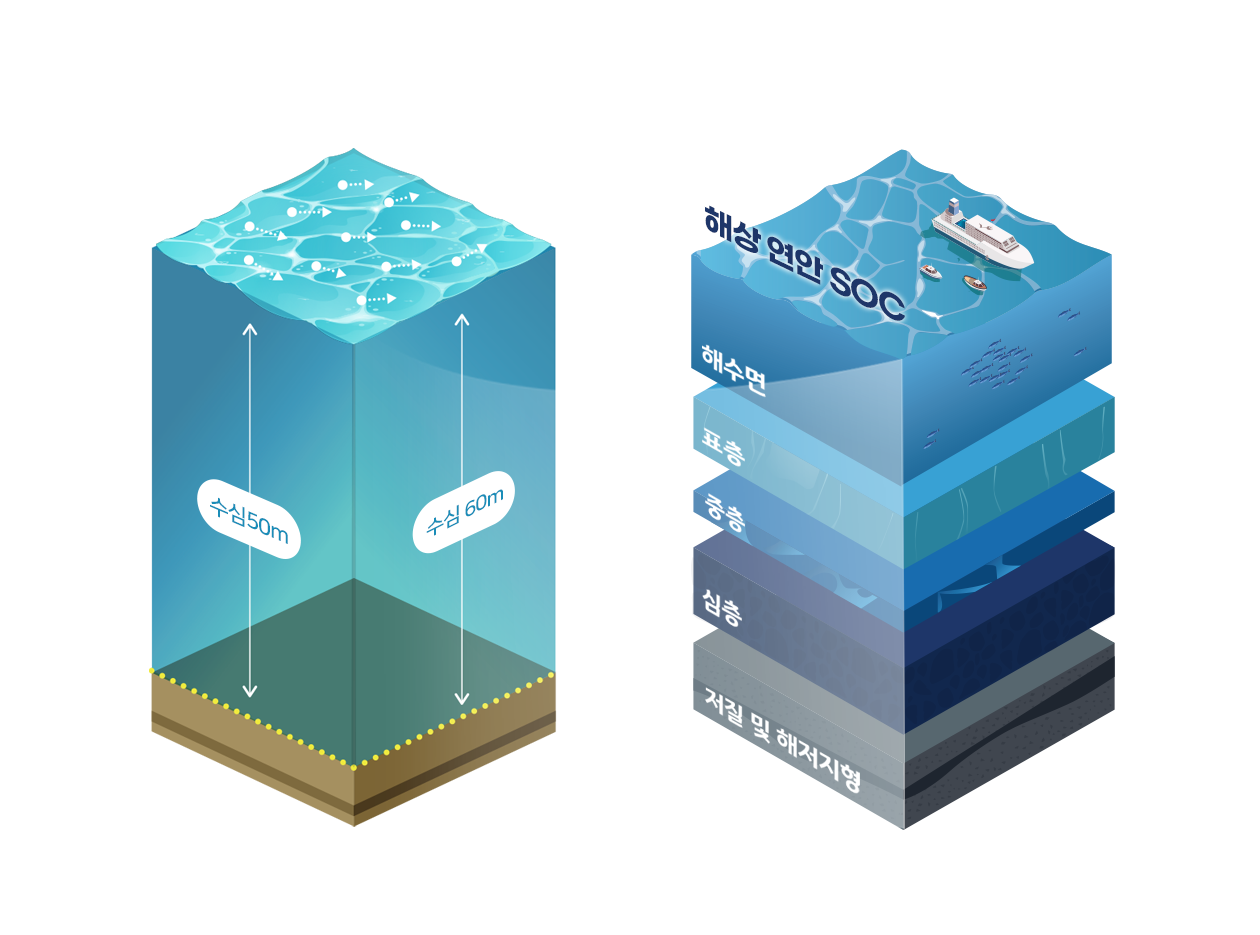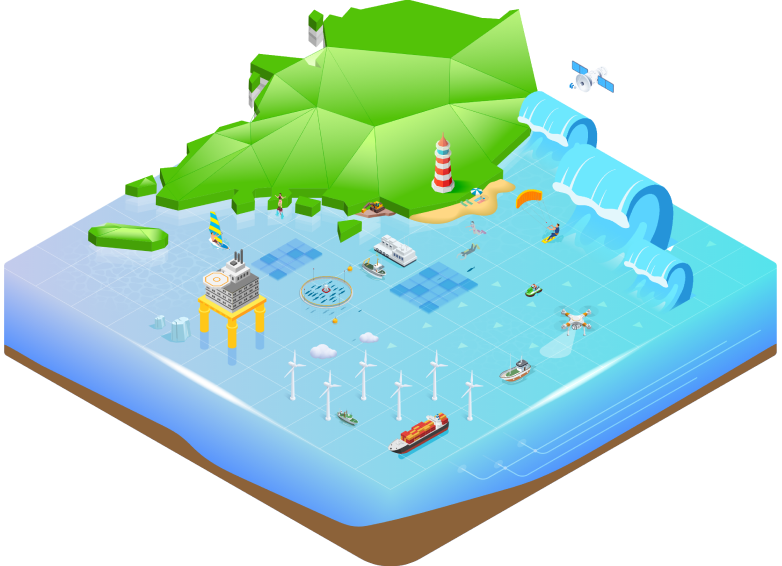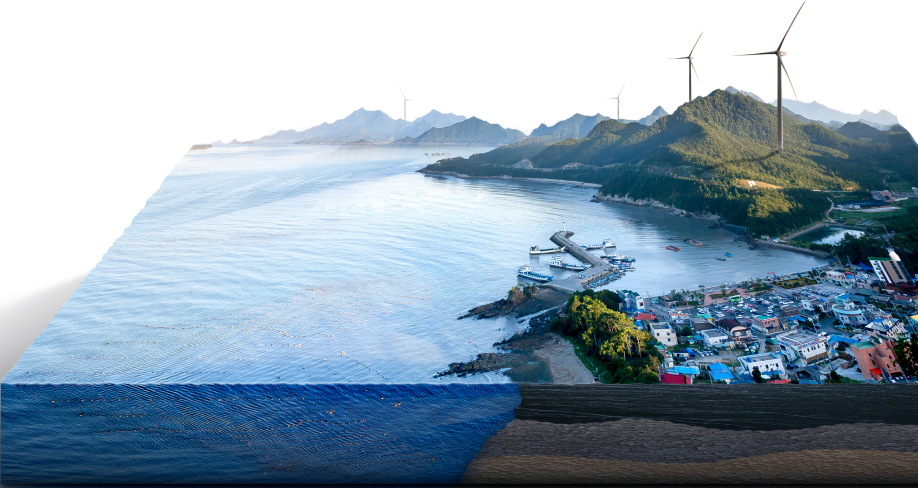Research on Korea's digital twin of the ocean will be conducted between 2022 and 2026.
The project, which is comprised of three parts, aims to achieve integrated management of maritime space. This management approach seeks to optimize the utilization and allocation of marine resources, promote sustainable development and protection of coastal areas, and ensure the preservation of marine ecosystems.
Project I
Project I
Total funding : KRW 394.63 billion
Project budget : KRW187.99 billion

Project II
Project II
Total funding : KRW 394.63 billion
Project budget : KRW12.978 billion

“Development of Technologies for Marine Spatial Policy Simulator”
Project II. Involves the development of policy simulation tools that leverage predictions and scenario analyses of marine activities in order to assess future impacts of marine spatial policy and facilitate the integrated management of marine space.
To facilitate the development and utilization of an integrated digital twin-based policy simulator, the project includes two important steps. Firstly, comprehensive research on policy trends is conducted to gain valuable insights. Secondly, requirement analysis is performed to establish guidelines for the development and utilization of the integrated digital twin-based policy simulator.
The project involves a range of tasks to facilitate the pilot application of sector-specific maritime policy scenarios and evaluation indicators. These tasks encompass setting up a policy agenda, developing policy scenarios, planning and designing a data model architecture and policy simulator, as well as developing technology for visualization and reporting.
It also focuses on developing and validating a digital-twin enabled policy simulator, which involves the development of simulator software and digital twin integration, and the development of an analysis engine and interface to enhance the functionality of the policy simulator.
A development plan is in progress for the creation of six distinct types of simulators
Project III
“Development of Marine Prediction Information Service Platform”
In Project III. will develop a Marine Forecast Information Service Platform, which entails the creation of user-centric marine forecasting technology. The primary aim of the platform is to create a tool for the improvement of safety in the marine environment by leveraging foundational technologies for seamless integration and delivery of marine forecast data. This integration strives to offer predictive information that is profoundly relevant to people's everyday lives and a diverse array of marine activities, ultimately ensuring their well-being and fostering a safer marine ecosystem.
The project involves various essential activities to develop customized scenario technologies for specific services. These activities comprise conducting a service demand analysis to facilitate field-oriented operations in disaster response, safety, and search and rescue-related services. Furthermore, a feasibility analysis is conducted to evaluate the integration of scenarios between digital platforms and policy simulators. Additionally, a service model with specific goals is designed, tailored specifically for marine prediction services.
For the development of service technologies that provide customized marine prediction information, data collection and data preprocessing techniques for marine prediction services will be developed. In addition, technologies for enhancing data construction and management techniques through integrated analysis of unprocessed marine and meteorological data will be developed along with designing algorithms to generate ocean current prediction information with high temporal resolution, specifically tailored to meet the needs of maritime safety and search and rescue services.
To effectively monitor changes in marine activities, the project involves the creation of customized management and real-time delivery technologies for marine prediction services, the development of interfaces that seamlessly integrate the ocean digital twin platform with policy simulators and the development of an integrated system for producing field-centric customized prediction information.
Lastly, the project involves developing technologies for maritime disaster response services. First, a high-resolution sea level and tsunami prediction data analysis technology is being developed to enhance maritime disaster response capabilities. And second, a reliable marine prediction information services are being created to provide essential support for disaster response operations.
Project III
Total funding : KRW 394.63 billion
Project budget : KRW65.24 billion
